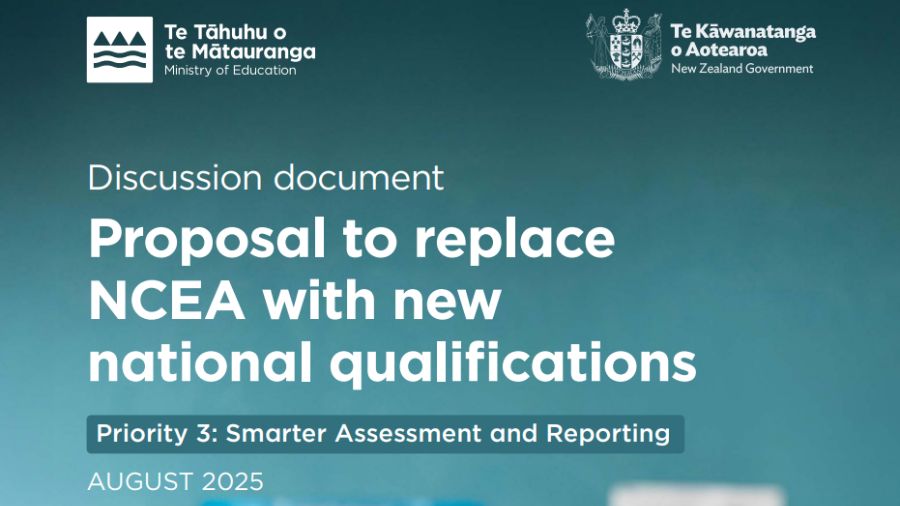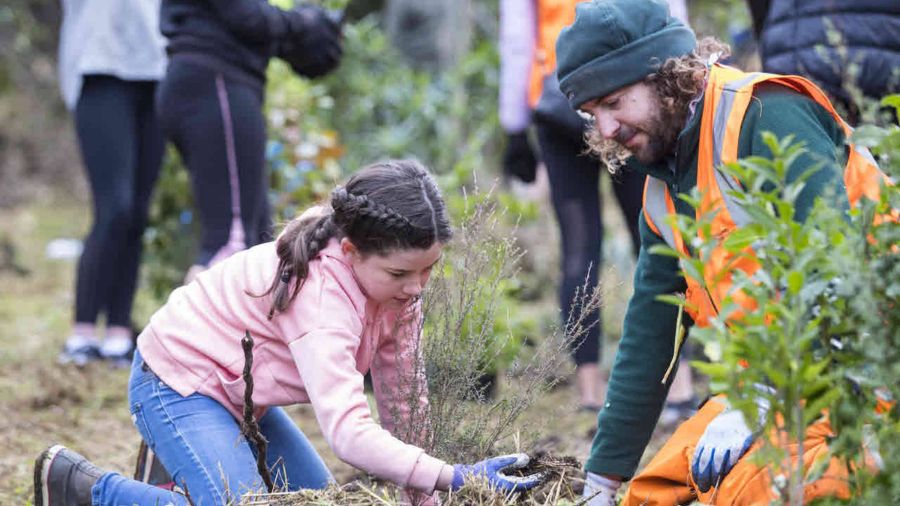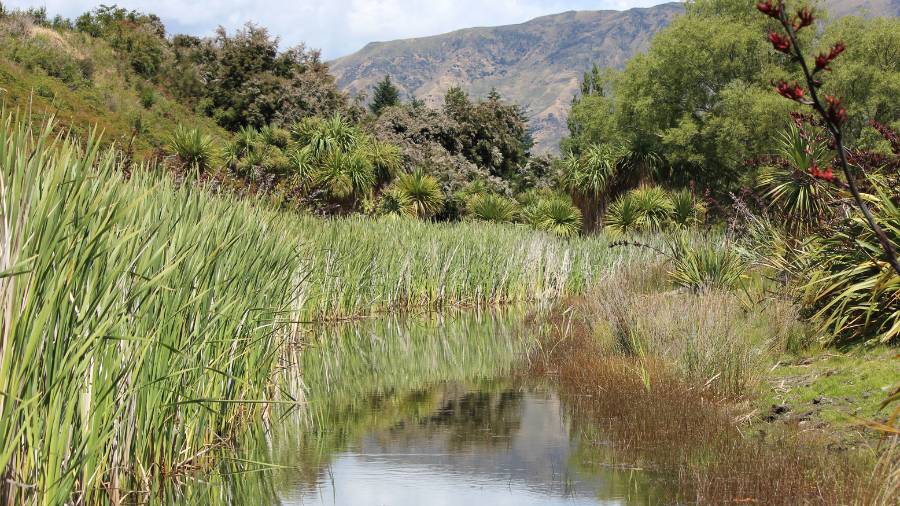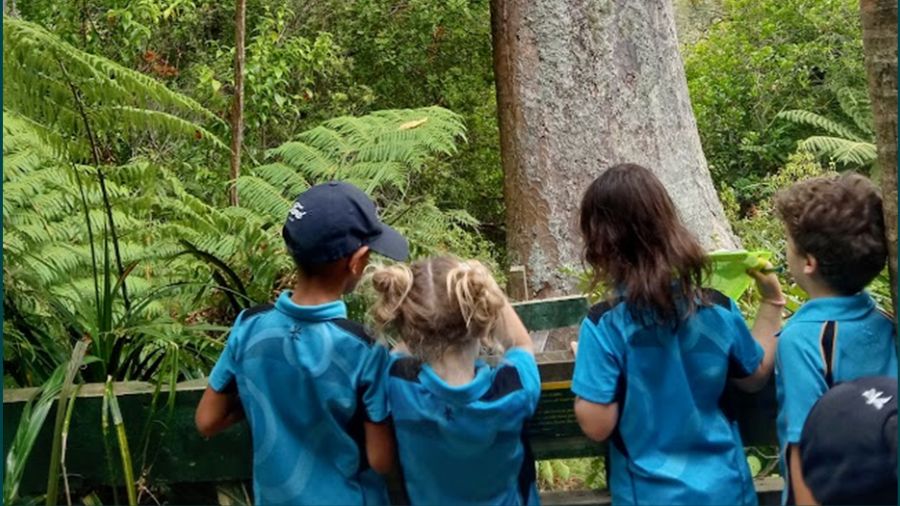NZAEE Submission on Proposal to Replace NCEA
Note: This text has been updated on Friday September 12th with our final submission.
How to Submit your own feedback:
Visit the consultation page, and engage with the material provided. You’re welcome to use our NZAEE feedback as a guide (see full text below) and/or use the tools provided by PPTA.
We recommend emailing your feedback to: nceaconsultation@education.govt.nz
You can also use the online form, but note that you will need to follow the format provided.
Short on time? Just send a quick email with a few sentences outlining your concerns/thoughts about the consultation process and/or the proposal, and make it personal to your work with young people.
Consultation closes at 5pm on Monday September 15th
There are also two petitions you may want to check out:
Save NCEA - Strengthen, Don’t replace it, from Aotearoa Educators Collective.
Stop the Government taking away Outdoor Education, from Education Outdoors NZ
NZAEE Submission Text
The New Zealand Association for Environmental Education (NZAEE) is a national network of teachers, educators and organisations working to build environmental and sustainability understanding through education. Our mission is to support and inspire educators, ākonga and communities to learn, collaborate and take meaningful action for an equitable and sustainable future. As an organisation, we are committed to honouring the principles of Te Tiriti o Waitangi, recognising it as the foundation upon which all work and relationships in Aotearoa are built. This commitment must extend to the education system, where we believe that the integration of values, tikanga and mātauranga from te ao Māori are fundamental to shaping an inclusive and equitable learning environment that supports wellbeing for both people and the environment.
NZAEE’s members include teachers and environmental education providers who specifically support young people in secondary schools and kura kaupapa Māori with learning and assessment using a range of NCEA assessments, including Education for Sustainability. Our core team includes experienced educators who have worked as teachers/kaiako in Aotearoa secondary schools and kura kaupapa Māori. For this consultation process we have done our best within the short timeframe to engage with teachers, kaiako, environmental educators and other subject associations with links to environmental, sustainability and place-based learning. We have referred to the discussion document and Cabinet paper and have chosen to provide general feedback, rather than responding to the specific questions for each proposal.
Consultation process concerns:
We are deeply uncomfortable with the current process to seek feedback on a new assessment system for secondary schools and kura kaupapa without first having access to the new senior curriculum. Although we now have a confirmed list of senior subjects, we will not see drafts of the new senior curriculum until Term One next year, so we can’t comment accurately on many of the proposed changes. We believe the current consultation should be extended to include a longer timeframe, with more meaningful engagement with the sector, young people and tangata whenua.
We also note our frustration at the lack of consultation with subject associations when deciding which subjects will make up the senior curriculum subject list. The processes for making these decisions have not been transparent and we will continue to engage with the Ministry curriculum team to discuss the future of Education for Sustainability / Environment and Societies.
Despite these overarching concerns, we have chosen to take the opportunity to send our feedback and emphasise three key points that relate not only to this NCEA consultation but also to the wider approach being taken to refresh the New Zealand Curriculum and Te Mārautanga o Aotearoa.
1. Honouring Te Tiriti o Waitangi
Mana ōrite mō te mātauranga Māori was a key commitment as part of the NCEA change programme, including integration within assessments at Level 1. With no mention of this within the consultation materials, we can assume this will no longer be a priority within the proposed qualifications, which is not acceptable. Please provide more information about how you plan to uplift mātauranga Māori and honour the Crown’s commitment to Te Tiriti o Waitangi within the proposed new qualifications and the new senior curriculum. We note that this has been an ongoing concern across the recent curriculum change process in 2024 - 2025, as outlined in our submissions for the maths and English curriculum at both primary and secondary levels.
2. Flexibility: Essential to Interdisciplinary Learning and Student Agency
We are strongly concerned by the proposal to “shift focus to a structured and subject approach”, including the acknowledgment that “schools will have less flexibility in the design of individual learning programmes”. We believe that the current issues and concerns about the flexibility of NCEA can be addressed by supporting teachers and schools with course and assessment development, rather than changing the whole system to a restrictive and reductive approach.
Education should prepare our young people for a complex and evolving future, with key values and skills such as critical thinking, action competence, empathy and kaitiakitanga. These are best developed through learning contexts that combine traditional subjects, supported by pedagogical approaches such as project- and place-based learning. There is clear messaging in the consultation document and Cabinet paper that schools will no longer be able to cater to students’ interests, strengths and aspirations by creating localised and interdisciplinary courses. This is highly concerning and we disagree with this proposal, noting some specific points related to our subject area:
- Education for Sustainability (EfS) has been used by secondary schools as both a standalone subject and also within senior courses from a range of learning areas, including sciences, social sciences, outdoor education and others. With the announcement on September 11th that Education for Sustainability / Environment and Societies will no longer be a standalone subject in the senior curriculum, we have no confidence that the important skills and knowledge related to all aspects of sustainability (environmental, cultural, economic and social) will be incorporated within other senior subjects. As noted previously, we will not see the draft curriculum for the senior subjects until Term One next year, so cannot comment on whether our subject area will be sufficiently covered through other subjects on the list.
- Feedback from environmental education providers working directly with schools includes: "Education for Sustainability is not just another subject. It’s where students learn how to connect what they’re studying to the real issues around them – climate change, biodiversity, waste, water, energy – and how to take action that makes a difference. We see every week how this subject lifts engagement, grows leadership skills, and creates pathways for students into further study, employment, and community leadership.”
- Secondary teachers spoken with are very concerned about how the proposed changes will limit their “ability to develop courses based on student need and interest”, including the risk of less engagement with their local environment, community and issues. We are also concerned that any removal of a visible pathway for careers in sustainability will limit student options as many jobs are being advertised with a need for sustainability knowledge and skills.
- We are concerned that Outdoor Education has been included as a VET subject at Years 12 and 13. We do not agree with this decision and support our colleagues from Education Outdoors NZ in advocating for Outdoor Education to be included on the general subject list, and to honour the amazing work that has already been completed to develop Level 2 Outdoor Education Achievement Standards. These integrate key values, knowledge and skills that help our young people connect with and care for te taiao.
3. Equity and Inclusion
We are very concerned that the proposed new senior secondary qualifications have not been designed with equity and inclusion at their core, backed by evidence of what works best for our learners. Instead, we note statements in the Cabinet Paper, including Pg 7 “officials expect that initially attainment rates would likely decline. These impacts are likely to be most significant for students facing socioeconomic barriers, Māori and Pacific learners and disabled learners” which is reiterated and expanded upon in the Impact Analysis on page 12. We do not agree that these are likely to be ‘short term’ impacts and that achievement will ultimately increase for these groups, who are already underserved by the current system and will certainly not benefit from a decrease in flexibility and individualised learning, at both the subject level and overall qualification level.
Given these concerns, NZAEE does not support the proposed changes to NCEA as currently outlined in the discussion document and we urge the Ministry to undertake meaningful consultation with the sector, once the new senior curriculum has been finalised and established within schools.






